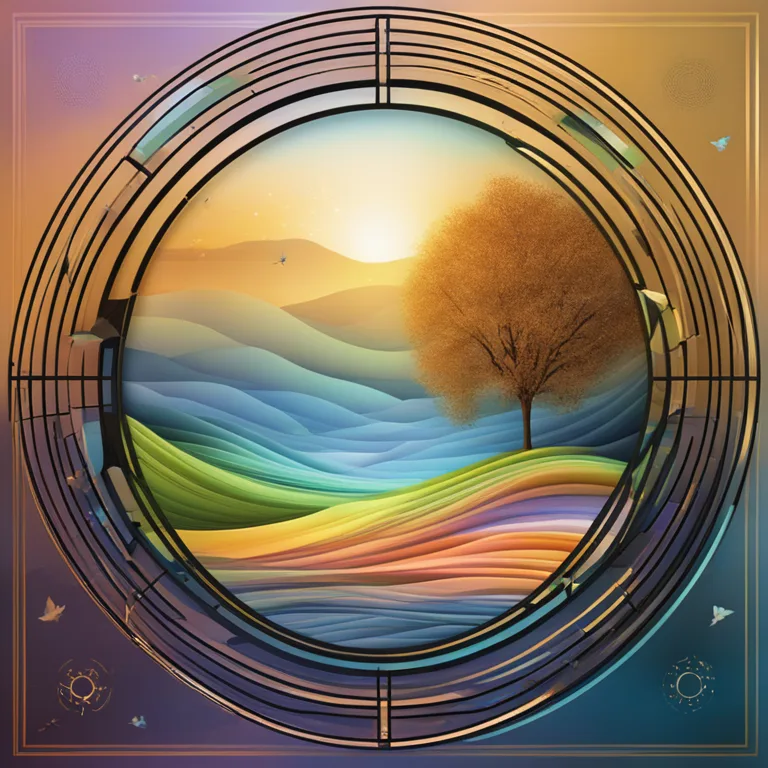
Mastering Biorhythm for Better Sleep
Discover how biorhythms can affect sleep patterns and learn to harness them for a more restful and regenerative sleep experience.
article by Adrian Wallace
The Connection Between Biorhythms and Sleep
For ages, our ancestors have looked to natural cycles to understand our own internal rhythms, especially when it comes to sleep. In modern times, biorhythm theory presents a lens through which we can view and interpret these cycles. Biorhythms are biological cycles that repeat themselves and are believed to influence various aspects of human physiology and behavior, with implications for physical, emotional, and intellectual well-being. This article delves into the fascinating relationship between biorhythms and sleep, offering insights into how we can align our natural cycles to improve the quality of our slumber.

Understanding the Biorhythm Cycles
Three primary biorhythm cycles are thought to affect our daily lives: the physical (23-day cycle), emotional (28-day cycle), and intellectual (33-day cycle). Each of these cycles has high and low phases. The physical cycle is said to influence factors like stamina and coordination, the emotional cycle sways our mood and creativity, while the intellectual cycle purportedly impacts our analytical thinking and memory. While the intricacies of these cycles and their effects on sleep are still under scientific scrutiny, enthusiasts believe that syncing with these rhythms can promote rejuvenating sleep patterns.

Aligning Biorhythms for Optimal Sleep
To synchronize our sleep with our biorhythms, we must first track them. Several applications and online tools have arisen with the ability to predict one's personal cycle patterns based on birth date. By using this information, individuals can identify the periods when they are likely to experience deeper or more disrupted sleep. For instance, during the low phase of the physical cycle, one might feel inclined to sleep more but have less restorative sleep—knowledge that can be used to adapt bedtime routines or manage sleep environments more effectively.

Biorhythm and Sleep Hygiene
Once familiar with our biorhythm patterns, we can refine our sleep hygiene to amplify the beneficial phases and cushion the impact of the challenging ones. This might involve adjusting light exposure to match our cycles or selecting activities that suit our current biorhythm phase before bedtime. Engaging in gentle yoga or meditation during an emotional low phase, for instance, can be soothing and conducive to better sleep. Moreover, adhering to a consistent sleep schedule resonates with our fundamental need for rhythm, further entrenching the gains from biorhythm awareness.

Scientific Perspectives on Biorhythms and Rest
It's crucial to note that, while biorhythm theory is embraced by many for its holistic view on well-being, it is still regarded with skepticism by the scientific community. Sleep research has shed light on more widely accepted cycles such as the circadian rhythm, which also plays a significant role in sleep regulation. Nonetheless, some sleep experts recognize that an individual's perception and placebo effects stemming from belief in biorhythms can have tangible positive outcomes for sleep. Thus, integrating knowledge of both circadian and proposed biorhythm cycles might offer the best approach for those seeking enhanced rest.
The Future of Biorhythm Research
Although the field of biorhythm study still lacks conclusive evidence, ongoing research continues to evolve. As we advance into 2024 and beyond, technology plays an increasingly central role. Wearable devices that monitor a host of physiological measures are becoming more sophisticated, potentially offering personalized data that could shine a light on the impact of biorhythms on sleep. Advances in data analysis and machine learning might soon provide new insights into how we can fine-tune our lifestyles for better sleep harmony with our innate biological rhythms.
Published: 12/28/2023
Modified: 12/28/2023
More predictions
Come back here soon to learn more about yourself and your future


Biorhythms: The Science Behind
Delve into the scientific basis of biorhythms and discover how they influence our daily lives and wellbeing.


Biorhythm: The Accuracy of Compatibility
Delving into the precision of biorhythm compatibility in relationships. Discover how personal rhythms relate to compatibility.


Biorhythm Horoscope: Syncing Life with Biological Cycles
Discover how biorhythm horoscopes align with your life's natural rhythms for personal insight and forecasting.